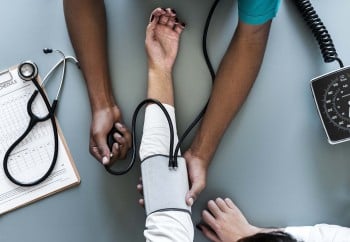Physical Side Effects of Grief
Many people assume that grief is a process that takes place only within the mind and the heart. After all, losing a loved one is not like being in a car accident—you hurt, yes, but not in a physical way. There are no broken bones to mend, no surgery that can fix the problem and make you whole again.
While this is generally true of loss, grief can still be a very physical manifestation. Those who have never experienced the death of a loved one before might be surprised at the toll it takes on your body. From fatigue and changes of appetite to pain that may require medical intervention, here are the more common physical side effects of grief.
- Fatigue: Exhaustion, tiredness, listlessness…no matter how you look at it, fatigue is the most common side effect of grief. You might be finding it difficult to sleep because of your heavy emotional burden, or you may be getting plenty of sleep but still feel unrested. Both of these are common, especially if you have a history of fatigue and depression.
- Difficulty Breathing: Although you should always see a doctor if your symptoms are bad enough, a general tightness in the chest or hyperventilation could be signs of increased anxiety. Feelings of anxiety are common after loss, and can manifest themselves in many different physical cues, including dizziness or shortness of breath.
- Headache: Crying is well-known to cause lingering headaches, as can ongoing stress or poor sleeping/eating habits. All of these are common after a loss, so it is no surprise that many people experiencing grief will also experience headaches of varying degrees of severity.
- Fever/Virus: Extended grief can lower your immune system’s ability to respond to illness, especially if you are dealing with large amounts of stress following your loss. When your body is not as strong as it normally is, you may be more susceptible to infections, including things like the flu and cold viruses. Severe cases may require medical intervention.
- Skin Disorders: Stress can express itself in various ways, including skin disorders. If you (or someone in your family) are prone to flare-ups of eczema or psoriasis during times of high anxiety, you might find that you, too, will develop rashes or skin conditions following severe loss.
- Digestion Problems: After a loss, you may be unable to eat more than a few bites at a time, your appetite all but gone. You might also take comfort in food, and binge on sweets and fatty foods that provide a feeling of contentment, however short-lived that feeling is. Both of these extremes are normal, but neither one is healthy over the long term. Eating healthy food and eating regularly is important for maintaining your strength, even if it feels impossible at this time.
Although you are unlikely to feel “good” for some time following a loss, your health and self care are still top priorities. Keep a journal of your symptoms and do your best to lead an active, healthy lifestyle. And if anything feels like it is more than just a symptom of grief, be sure to seek medical help.



